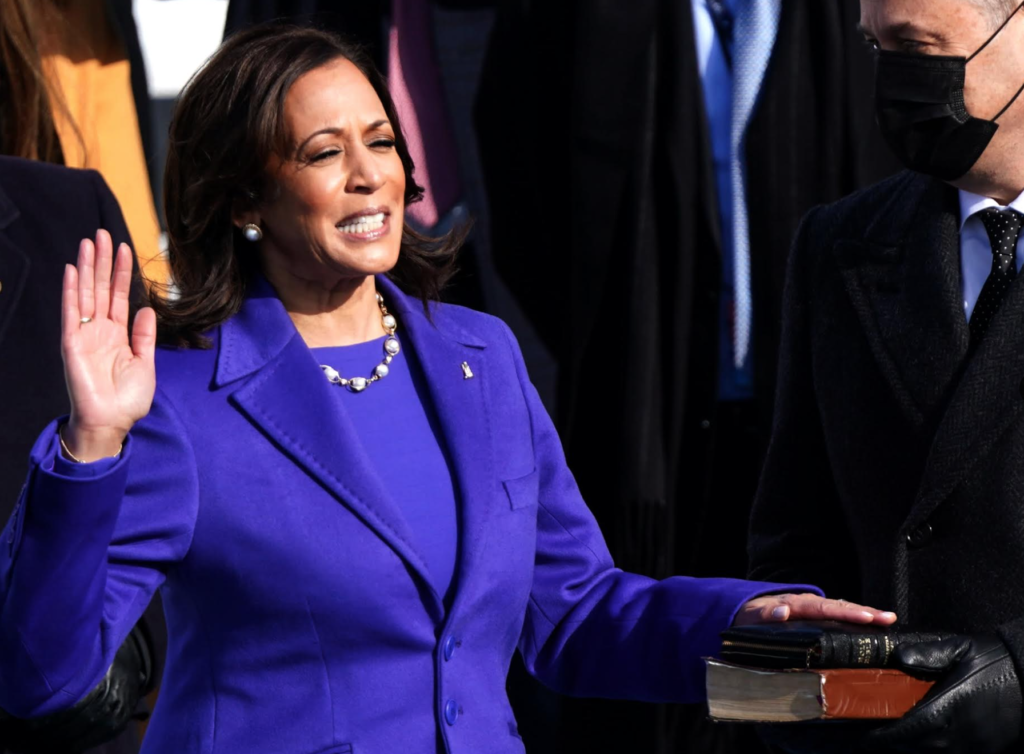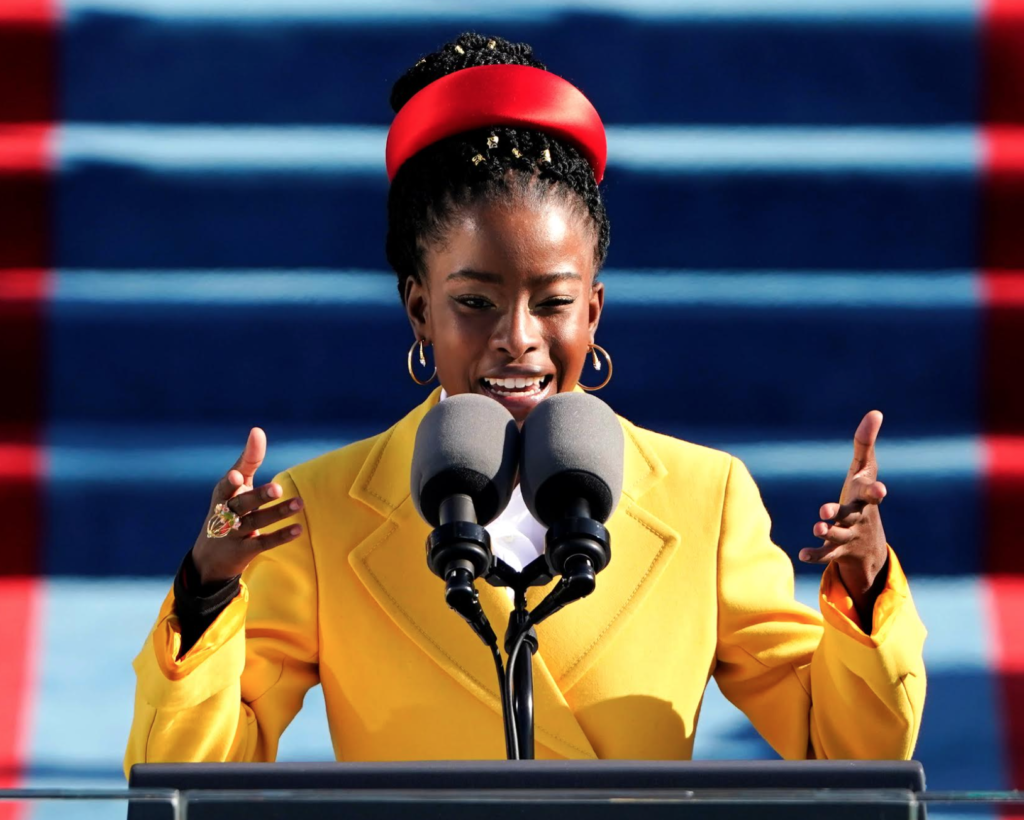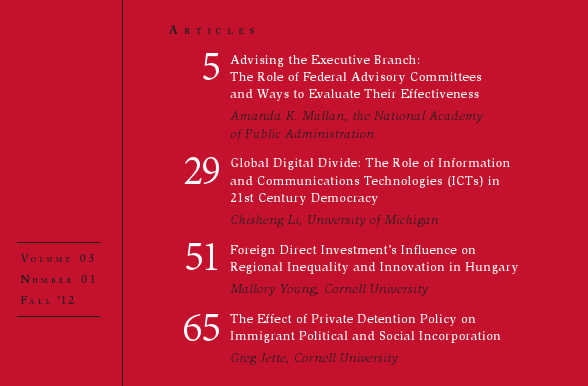Source: Mccv/ Shutterstock.com
Written by Cosmas Emeziem
Edited by Tiffany Agard
Where were you when the first female Vice President of the United States, Kamala D. Harris, was sworn in? Did you know it took 101 years after US women’s suffrage[1] for the first woman Vice President to be elected and inaugurated? Did you know that it was also 56 years after the Civil Rights Act 1964 that restored African Americans’ rights to vote? In-between were years of democratic action, organizing, and policy dialogues.
In those years, many patriots paid the price of democracy and kept its flickering beacon aglow. They ran the race to pass on the baton of democracy with hope and charity from shore to shore. On the morning of the inauguration, the flurries of snow on Cornell’s Ithaca campus and the presidential inauguration arena in Washington D.C. presaged a special moment. Yes, it is that time[2] of the year—with chilling winter[3] breeze and cascading flakes of snow. It is that wintry time of the year, and the anxiety of the COVID-19 pandemic did not make the inauguration less complicated. Attendees were all required to wear masks and observe social distance despite the occasion. Indeed, it was held at a time of great economic, social and political difficulties exacerbated by the COVID-19 pandemic. However, the warmness of the moment suggested a new beginning. It was the inauguration of a new American President and Vice President—the 59th time in the 245 years of America’s ‘democratic experiment.’

Coming behind a bitterly fought election in America, the moment was unique in many respects. It will be the first time a woman—a Black and South Asian woman—will serve as the Vice President of the United States.[4] [5] [6] But America opened another important democratic landscape by electing Kamala Harris to the Office of the Vice Presidency. Alas, America has overcome its perennial inertia towards women—especially Black women and women of color—in public policy and governance—at the highest offices at the national level.
The Country gave wind to many little children’s dreams—especially to Black and young girls of color, by this act of democratic courage—that everything is possible. They, too, are co-owners of America. Her oath of office administered by the first Latina on the Supreme Court Bench of the United States was epoch-making. Therefore, the COVID-19 pandemic, in its viciousness and the chilling winter breeze, could not blur the moment. Once again, American democracy has another chance to continue the march towards a more perfect union.
As is the case with every transitional moment, democratic societies should look back while moving forward; else, they stand to repeat the past mistakes. Many of these historical mistakes—violence against first nations, slavery, segregation, voter repression—and the bitter politics of the recent elections have manifested in the events at the Capitol on January 6, 2021. It unveiled America’s deep divides and fragile social, economic, cultural, religious, and democratic fabric. Thus, there are continuing concerns about economic exclusion, demographic anxiety, inequality, lack of healthcare support, and the increasing privatization of the public sphere. Even now, this mesh of concerns continues to spark resentment in the body polity. The foregoing state of affairs has led to several calls for healing and reconciliation in America. These calls for unity and reconciliation have also been met with the demand for accountability, responsibility, and restoration of the sacred public sphere, which has been violated by the protesters at the Capitol. Hence the theme of unity featured prominently in the inauguration ceremony—including the president’s speech and the invocation by the pastors.
As the 200,000 flags in the background gyrated to the gentle winds amidst the flurries of snow, one was reminded again of those who have died due to the COVID-19 pandemic. It recalled the wavering nature of democracy and the fact that active participation is the lifeblood of democracy. Democracy remains an act—a duty which we owe to ourselves and the future generation as trustees of the American state. To fiddle with that heritage is a luxury that any reasonable person can ill afford in a democratic society. It is a heritage, for which many had offered the greatest recompense, for its sustenance and continued enrichment.
For policy enthusiasts, the elections have come and gone, but policymaking has just begun. Indeed the task ahead is the hard work of delivering public policy in ways that will enhance democracy and deepen restoration, reconciliation, unity, justice, equality, equity, and peace for all. The promises of the election season—to ‘build back better’ and give all Americans a chance to succeed—will require grit and sacrifice. Thus, making the American democracy work for all and ensuring that the promises of a free America do not come back as “dud checks”—especially to its minority populations—is the greatest policy concern and hope of this historical hour. Already, calls for the implementation of a robust COVID-19 stimulus package has become strident. Other issues like the cancellation of student debts, enlargement of access to healthcare for all, criminal justice reforms such as abolishing the death penalty, and decriminalization of recreational use of marijuana are also currently receiving public articulation and mobilization.[7] President Joseph Biden emphasized many of these points in his inaugural speech. He called for unity while expressing his belief in the possibility of change. This emphasis was further given a policy endorsement in an Executive Order made shortly after the inauguration ceremony thus:
“NOW, THEREFORE, I, JOSEPH R. BIDEN JR., President of the United States of America, by the authority vested in me by the Constitution and the laws of the United States, do hereby proclaim January 20, 2021, a National Day of Unity and call upon the people of our Nation to join together and write the next story of our democracy — an American story of decency and dignity, of love and of healing, and of greatness and of goodness.”[8]
Astonishingly, the inaugural speech resonated with the tremendous poetic rendition of Amanda Gorman.[9] That poetic voice piercingly captured the moment and mirrored the history and struggles about justice, equity, equality, restoration, reclamation, reconciliation, and democracy in America. Amanda is a prophet of newness—an utterer of the unutterable earnestness. Like an African grandmother, she eloquently wove magnificent beads, sequins, and patterns into the fabric of America. In a sense, she knitted together the ripping seam of American history. At a time of disappearing depth in public communication, Amanda Gorman is a bringer of hope. Policymakers need to now see the value of poetry in public policy. Poetry articulates the ruminations of a people’s mind. It opens dialogues that are both current and timeless. It stirs hope even in times of difficulty. We live by symbols and prophecies. Like the previous prophecies—the Declaration of Independence, the Emancipation Proclamation, and Lincoln’s Gettysburg Address—Amanda Gorman’s poetry reinforces the value of prophecies fitly spoken, in the life and democratic trajectory of America. Thus, every generation needs the utterer of truth—a teller of unvarnished freshness. Amanda Gorman is our fresh fountain of water. May her wisdom surge like the great fountains of her ancestors.
In the hours since the inauguration formalities of President Joseph Biden, and Vice President Kamala Harris, the president has signed some Executive Orders (EOs):
- The EO Preserving and Fortifying Deferred Action for Childhood Arrivals (DACA) January 20, 2021
- Reinstating Deferred Enforced Departure for Liberians January 20, 2021.
- Proclamation on the Termination Of Emergency With Respect To The Southern Border Of The United States And Redirection Of Funds Diverted To Border Wall Construction January 20, 2021.
- Executive Order on Ethics Commitments by Executive Branch Personnel January 20, 2021
- Modernizing Regulatory Review January 20, 2021.
- Executive Order on Preventing and Combating Discrimination on the Basis of Gender Identity or Sexual Orientation January 20, 2021
- Executive Order on Protecting Public Health and the Environment and Restoring Science to Tackle the Climate Crisis January 20, 2021
- Executive Order on Ensuring a Lawful and Accurate Enumeration and Apportionment Pursuant to the Decennial Census, January 20, 2021.
- Executive Order on Revocation of Certain Executive Orders Concerning Federal Regulation, January 20, 2021.
- Executive Order on the Revision of Civil Immigration Enforcement Policies and Priorities, January 20, 2021.
- Executive Order on Organizing and Mobilizing the United States Government to Provide a Unified and Effective Response to Combat COVID-19 and to Provide United States Leadership on Global Health and Security, January 20, 2021.
- Executive Order on Protecting the Federal Workforce and Requiring Mask-Wearing, January 20, 2021.
- Proclamation on Ending Discriminatory Bans on Entry to The United States, January 20, 2021.
- Executive Order On Advancing Racial Equity and Support for Underserved Communities Through the Federal Government, January 20, 2021
- Regulatory Freeze Pending Review, January 20, 2021.
- A National Day of Unity, January 20, 2021.
- Executive Order on Protecting the Federal Workforce January 22, 2021
- Executive Order on Ensuring an Equitable Pandemic Response and Recovery January 21, 2021
- Executive Order on a Sustainable Public Health Supply Chain January 21, 2021
- Executive Order on Economic Relief Related to the COVID-19 Pandemic January 22, 2021
- Executive Order on Establishing the COVID-19 Pandemic Testing Board and Ensuring a Sustainable Public Health Workforce for COVID-19 and Other Biological Threats January 22, 2021
- Executive Order on Protecting Worker Health and Safety January 21, 2021
- Executive Order on Supporting the Reopening and Continuing Operation of Schools and Early Childhood Education Providers, January 21, 2021
- Executive Order on Ensuring a Data-Driven Response to COVID-19 and Future High-Consequence Public Health Threats January 21, 2021.
These executive orders have varied implications on public policy. In the months ahead, any meaningful policy analysis of this administration will need to consider the impact of these orders. There are three significant issues to factor into analyzing the public policy impact of these executive orders. First, we will need to consider the institutional and systemic impact of these orders. Are they impactful or are they symbolic gestures—a dance of democracy without more? The next factor will be to see how they shape processes and democratic dialogues in the society going forward. These dialogues will determine what policy interventions are given prominence, and how these are affecting the lives of Americans. Third, these Executive Orders will impact the values which inform democracy in America. For example, the Executive Orders on DACA and the Paris Climate Agreement will set the agenda for immigration and environmental policy in the months ahead.
Equally, the search for unity, peace, justice, truth, and reconciliation has just begun. In a sense, unity comes by work. Proclamations only open the dialogue needed for the search to be meaningful and fruitful. While the public policy changes hoped for may have begun with these Executive Orders, public policymakers must realize that this is merely an opportunity to work for the common good. It is a moment to recommit to the public interest and there is a ton of work to be done. As Amanda Gorman the first U.S. youth poet laureate tells us:

“We’ve braved the belly of the beast, we’ve learned that quiet isn’t always peace. And the norms and notions of what just is, isn’t always justice. And yet the dawn is ours before we knew it, somehow we do it. Somehow we’ve weathered and witnessed a nation that isn’t broken, but simply unfinished […] That is the promise to glade, the hill we climb if only we dare it, because being American is more than a pride we inherit – it’s the past we step into and how we repair it.”[10]
Whatever policy path this administration may assume in the months ahead, January 20, 2021 is a watershed. Yet, the work of democracy and equal justice has just begun. To unite America will also mean to reconcile America. Reconciliation cometh by truth, for it is the surest path to peace,[11] repair, healing, remembrance, and redemption. May this be America’s finest hour of redemption.
-
The 19th Amendment of the United States Constitution 1920. See The Nineteenth Amendment at 100, 129 Yale Law Journal (2019-2020); Reva B. Siegel, “She the People: The Nineteenth Amendment, Sex Equality, Federalism, and the Family,” Harvard Law Review 115, no. 4 (February 2002): 947-1046. ↑
-
Difficult times and winter seasons have always inspired poetic renditions by writers through the ages. See Dickens, Charles. “A Tale of Two Cities” (Wordsworth Classics). United Kingdom: Wordsworth, 1993. ↑
-
Literary allusions inspired by Charles Dickens: “ It was the best of times, it was the worst of times, it was the age of wisdom, it was the age of foolishness, it was the epoch of belief, it was the epoch of incredulity, it was the season of Light, it was the season of Darkness, it was the spring of hope, it was the winter of despair, we had everything before us, we had nothing before us, we were all going to Heaven, we were all going direct the other way—in short, the period was so far like the present period, that some of its noisiest authorities insisted on its being received, for good or for evil in superlative degree of comparison only.” Dickens, Charles. ibid pg. 3. ↑
-
Vice President Kamala Harris and President Joseph Biden Jr. made history in their respective ways. Joseph Biden at 78 years is the oldest person to take the presidential oath. Also, he is the second US president to come from a Catholic Church background, after John F. Kennedy. ↑
-
Sandstrom, Aleksandra. Biden is only the second Catholic president, but nearly all have been Christians, Washington DC: Pew Research Center, January 20, 2021. Available at < http://pewrsr.ch/241o5aH>. Many consider this as significant in understanding and analyzing the new administration’s policy disposition towards reproductive health rights and funding of health care in general. Catholic social teachings on such public policy issues as housing, poverty, immigration, feeding the hungry and serving the common good may also serve as guides towards understanding his policy mindset. See Warren, Michael and Saenz, Arlette. Biden’s Catholic Faith will be on full display as the first publicly churchgoing president in decades, Atlanta: CNN, December 13, 2020. Available at. <https://www.cnn.com/2020/12/13/politics/joe-biden-catholic-faith/index.html>. Boorstein, Michelle. Biden could redefine what it means to be a Catholic in good standing. Catholics are divided on whether that is a good thing. Washington, DC: The Washington Post, December 9, 2020. Available at. https://www.washingtonpost.com/religion/2020/12/09/biden-catholic-president-jfk-kennedy-bishops/. ↑
-
Religion was front and center in the 2020 presidential election—partly because of the leadership style of former president Donald Trump. See Dias, Elizabeth. ‘Christianity Will Have Power’: Donald Trump made a promise to white evangelical Christians, whose support can seem mystifying to the outside observer. NY. The New York Times, August 10, 2020. ↑
-
Krugman, Paul. Four Rules That Should Guide Bidenomics, NY: The New York Times, January 14, 2021. ↑
-
President Biden, Joseph. (2021) [Executive Order ] A National Day of Unity, January 20, 2021. ↑
-
Gorman, Amanda.(2021) Inaugural Poet Laureate, January 20, 2021. ↑
-
Gorman, Amanda. ibid. ↑
-
Murphy, Colleen. Political Reconciliation, Jus Post Bellum and Asymmetric Conflict (February 16, 2016). Theoria, Vol. 62 (2015): pp. 43-59, University of Illinois College of Law Legal Studies Research Paper No. 16-17, Available at SSRN: https://ssrn.com/abstract=2733272 ↑

